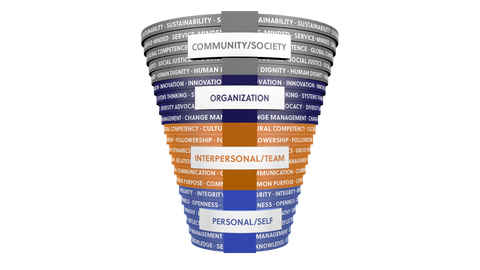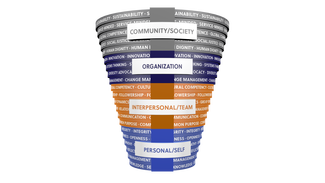
Before the doors of the ILC opened in 2002, a committee of faculty, staff, and students were charged by then Vice Chancellor for Student Affairs Dr. Pat Askew to create a set of guiding doctrine to inform and shape the practice of leadership at Illinois. This committee created the Illinois Philosophy of Leadership and 11 Skills & Attributes, which the ILC utilized to develop the center's curriculum and programs for over ten years. This same committee also worked to create and structure the initial plans for the ILC, which later included formally establishing an advisory committee, the Illinois Leadership Coordinating Committee, ILCC and later known as the Illinois Leadership Education Campus Collaborative (ILECC).
In 2014–2015, the ILC sought out to reimagine the doctrine that guided the ILC and the broader University’s practice of leadership education. In the fall of that year, four sessions of Campus Conversations on Leadership Education were held. Over 260 faculty, staff, and students participated in the task of identifying the skills, value, and attributes an Illinois graduates should demonstrate. Over 3,000 sticky notes were generated, which then provided themes for competencies and approaches to cultivate leadership on campus. What resulted was a white paper on “An Illinois Model of Leadership Education,” which includes four elements:
- philosophy of leadership,
- leadership learning and practice,
- leadership competencies, and
- a leadership assessment (The Illinois Leadership Inventory).
The cornerstone of our work is based on the Illinois Philosophy of Leadership.
